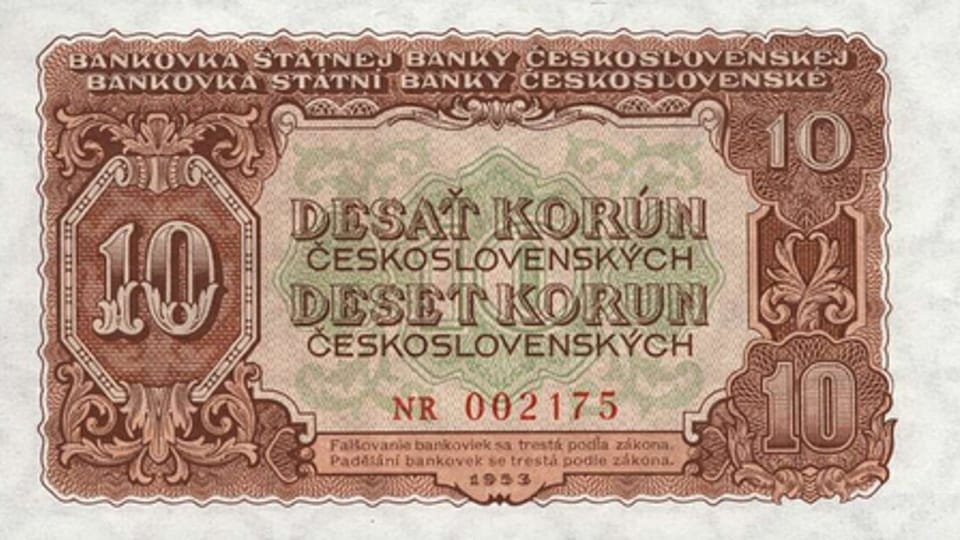
Photo: Czech National Bank
70 years ago, on June 1, 1953, the ruling Communist regime announced a major monetary reform which significantly cut the value of the money in circulation. Many people lost most of their savings and became virtually penniless.
1953 was not a great time to be alive in Czechoslovakia. Show trials, inspired by those in the Soviet Union, had been going on for years and were just culminating in the prosecution of 14 high ranking Communist Party officials that had fallen out of favour. Among them was the former general secretary of the party, Rudolf Slánský. He would soon hang after a confession forced out of him through repeated torture sessions.
The country, which had been ruled by the Communists since 1948, was heavily in debt after five years of economic mismanagement and people were still reliant on a state rationing system that had been originally put in place during the Second World War.
See the rest here.

